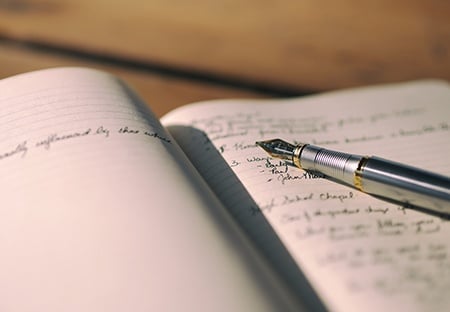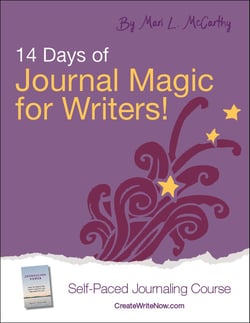Virginia Woolf started keeping a diary at age 33, and she continued journaling until four days before her death in 1941. However, Woolf didn’t use her diaries just as a written record of her internal thoughts; she used them as a creative outlet, as a way to hone her writing skills, and as an autobiographical tool.
Here are a couple of quotes from A Writer’s Diary , a book of excerpts from her personal journals, that will inspire you to keep journaling.
On Creative Journaling:
“But what is more to the point is my belief that the habit of writing thus for my own eye only is good practice. It loosens the ligaments. Never mind the misses and the stumbles. Going at such a pace as I do I must make the most direct and instant shots at my object, and thus have to lay hands on words, choose them and shoot them with no more pause than is needed to put my pen in the ink. I believe that during the past year I can trace some increase of ease in my professional writing which I attribute to my casual half hours after tea.”
In this excerpt, Woolf reflected that she can trace strides in her professional writing back to her constant creative and personal journaling. When you make it a habit to journal consistently, you’re practicing the art of writing, as well as using the journal as an outlet for personal expression. It makes sense that the more you journal, the better your writing skills become. This is important for all writers -- creative journaling lets you record thoughts, and it can also help you sharpen your writing in general. The more you write, the easier it is.
As an Autobiographical Tool:
In some of her journal entries, Woolf referred to herself in the future and anticipated rereading these journal entries at an older age:
“In spite of some tremors I think I shall go on with this diary for the present. I sometimes think that I have worked through the layer of style which suited it — suited the comfortable bright hour, after tea; and the thing I’ve reached now is less pliable. Never mind; I fancy old Virginia, putting on her spectacles to read of March 1920 will decidedly wish me to continue. Greetings! my dear ghost; and take heed that I don’t think 50 a very great age. Several good books can be written still; and here’s the bricks for a fine one.”
Woolf recognized that her personal journals were a valuable way of documenting the history of her life. She acknowledged that her older self would want her to continue journaling so she could one day look back upon the entries. This perspective applies to anyone who journals. Years from now, your journals will bring you back to experiences you might forget otherwise. What better way is there to remember your life than through journaling?
Do you find that journaling helps your writing skills? Do you see journaling as an autobiographical exercise? Let us know in the comments!
If you want to learn how journaling can help you tackle life's challenges and improve your writing skills, please download the free eBook, The Journaling Guide to Manage The Stress and Strains of Life.
Journaling offers a special kind of magic for writers. Our 14 Days of Journal Magic for Writers self-paced journaling course offers daily prompts, encouragement, and instruction that will help you boost creativity and hone and strengthen your craft.



Leave Comment